
Why Volunteer?
Jana Jansen van Vuuren
Posted: December 5, 2017
1) To Make A Difference And Live A More Meaningful Life
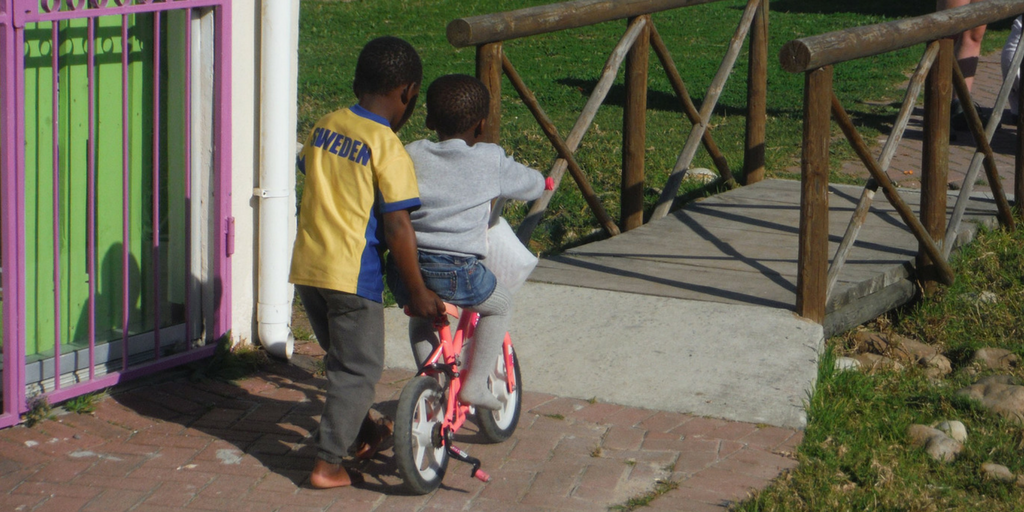
We’re all searching for a greater purpose in life. The famous psychologist, Victor Frankl, even thought that finding out what is important to us and dedicating our life to it is possibly our most basic desire.
Further Reading: 10 Things You Need To Know For Your First Volunteering Trip
According to many well-respected people throughout history, including the ancient Greek thinker, Aristotle, the Russian novelist, Tolstoy, modern spiritual leader, the Dalai Lama, and the beloved American author of young adult novels, John Green, meaning can be found through serving others.
And it makes sense, volunteering your time to help others connects you to a cause far greater than yourself — the goal of creating a better future for all. There is also the added benefit that if you work on one service project for long enough, you’re bound to actually see the changes your efforts have brought about, which will bring you even more satisfaction.
Further Reading: 6 Critical Global Issues | What Are The World’s Biggest Problems
If you’re looking for a meaningful volunteering experience, just be sure to choose an organisation that is committed to creating real sustainable change, like GVI. Before we set up any project, we first speak to the leaders of local organisations and communities to find out what they need. We then set our project objectives in response to their requirements and align them to one or more of the 17 United Nation’s Sustainable Development Goals. Progress on these goals are then measured monthly and annually by our field and office staff. This allows us to guarantee that every little bit of work you put in will go towards solving some of the world’s most critical issues on a grassroots level.
2) To Make Friends For Life

What is the true secret to happiness? Is it having everything you want and still having money to spare? Is standing on stage while thousands of fans shout your name? Is it some fancy skill that only truly spiritual people have mastered? Or is it wired into us by our upbringing or our genes?
Further Reading: 5 Great Reasons Why You Need To Volunteer Abroad
Turns out it’s nothing that mysterious. According to The Harvard Study of Adult Development which has been collecting and analysing data for over 7 decades, the answer to a more joyful life is developing closer bonds with friends and family. Harvard researchers have also shown that a good relationship can be linked to a healthier and longer life.
Further Reading: Teen Volunteer Opportunities With GVI
After reading all of this the lonely among us must be feeling even more despondent. Feeling isolated can be a terrible burden to bear, whatever the reason, and making friends can be rather difficult, especially if you’re introverted. The good news is that volunteering is one of the easiest ways to not only meet people but also to make lifelong connections.
Often times the problem with making friends is that there just aren’t that many situations in which it is easy to get to meet people who have common values and interests, get to know them, and form a real bond.
Volunteering will allow you to connect with people who share your passion for a certain cause, which means you’ll have lots to talk about, and you’ll also have a nice casual setting to do it in, where looking great and performing at your best isn’t a priority (I mean you’re probably going to be covered in dust, sweat and paint all day). The nature of fieldwork also means you’ll have many meaningful experiences while on the project, which has a unique way of bringing people together and keeping them together because reliving shared adventures is often irresistible.
Time and time again over the twenty years we’ve been running our programs, we’ve noticed that many of our volunteers have made fast friendships that span many years, oceans and even generations in the short time they spent together on project. The most recent pair of besties we’ve heard of who met on one of our projects is Kiri and Fenn who volunteered in Kochi, India, early in 2017.
3) To Live A Happier Life

So many people around the world struggle with depression. About seven percent of the American population and two out of every hundred Brits suffer from Major Depressive Disorder. What is also rather sad is that these numbers are on the rise.
Further Reading: Everything You Need to Know About Volunteering Over 50
Therapy and medication remain expensive and often it takes a lot of hard work as well as trial-and-error to find out just what works to help you feel better. While we would not recommend replacing medically approved therapies for depression, it has been proven that volunteering can do a great deal to lift your spirits.
Now, you already know that volunteering helps to create connections between people and that, in itself, can boost mood significantly. But several studies including ones conducted in Zurich, London, and Pennsylvania, have shown that donating both your money and energy to others could inspire a bout of positivity that lasts longer than if you had spent your resources on caring for yourself.
Further Reading: Is It Better To Give To A Charity Or Volunteer?
Researchers at Harvard have termed this the ‘happiness effect’ and compared its effects to what someone might feel when they’re just been told they got a raise. Volunteering might even create the same feeling in us as eating chocolate (no really). Scientists have found that the same part of the brain gets activated when we do both.
4) To Get Fit (And Lose Weight)
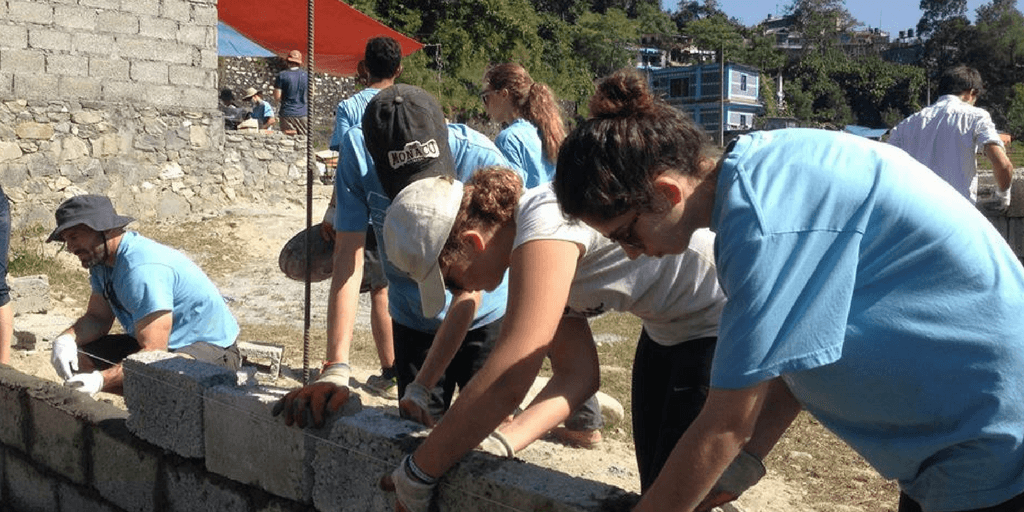
Other than helping you curb your chocolate addiction, many volunteer projects have a physical element, whether that be running after children while helping out teachers dealing with crowded classrooms, carrying building materials for a construction project, or hiking through the wilderness to collect plant samples.
Further Reading: Top 5 Reasons Why You Should Take A Volunteer Adventure To Fiji
The best part is if you’re finding it difficult to start and keep up an exercise routine, volunteering is one of the best ways to get fit and lose some weight because you won’t even realise you’re working out. All you’ll be focused on is making sure the work is done to make the world a better place.
Further Reading: 10 Things You Need To Know For Your First Volunteering Trip
As you already know, volunteering also makes you happier and strengthens your relationships, two of the main factors linked to leading a long and healthy life.
5) To Explore New Interests And Find Your Passion

Are you desperately longing to discover your passion? It doesn’t matter what your age is, everyone from school students to retired adults are searching for their true calling and it’s never too early or too late to start trying to find it.
Further Reading: Why I Regret Not Taking a Gap Year
It’s not a surprise that this question plagues our global consciousness. In the past we never had to choose a vocation or our daily work, one was decided for us by our family, gender, social status, and location. Now we have to make our own decisions about our choice of profession, and we’ve only recently started figuring out the best ways in which to answer this question.
Further Reading: How To Take A Gap Year: Before, During, and After
Probably the best advice anyone could ever give to someone still in search of the career that is perfect for them is to try out anything that piques your interest. We often have many ideas about what a certain type of work might be like and information about what it’s actually like is not always widely available. The very best way to find out if you’ll truly flourish in a role is to take an experimental approach and give it a go. Then keep track of what you enjoy (and what you don’t) and find out how you can do more of that.
One of the simplest ways to try out new interests is to choose a volunteer program where you’ll get to explore them. Do you dream of gracing the covers of cookbooks like Nigella? Why not volunteer to cook at a homeless shelter. Want to journey to Africa’s savannahs to document the habits of wild animals like David Attenborough? Look for a great wildlife conservation volunteering program in a remote location. Maybe you’ve always dreamed of becoming a doctor and saving lives? Why not see if the work is for you by completing a healthcare volunteering program.
The options are endless, whatever you’d like to try, there’s probably a need for it at a non-profit or social enterprise. The other good news is that getting ‘hired’ is a cinch because they’ll be looking for candidates willing to do work for free. That also means there will be less pressure on you to do the job perfectly and quickly, giving you more freedom to experiment and go where your curiosity takes you.
Further Reading: 9 Inspirational Travel and Volunteering Quotes
6) To Help You Get Into College (But Not For The Reason You Might Think)
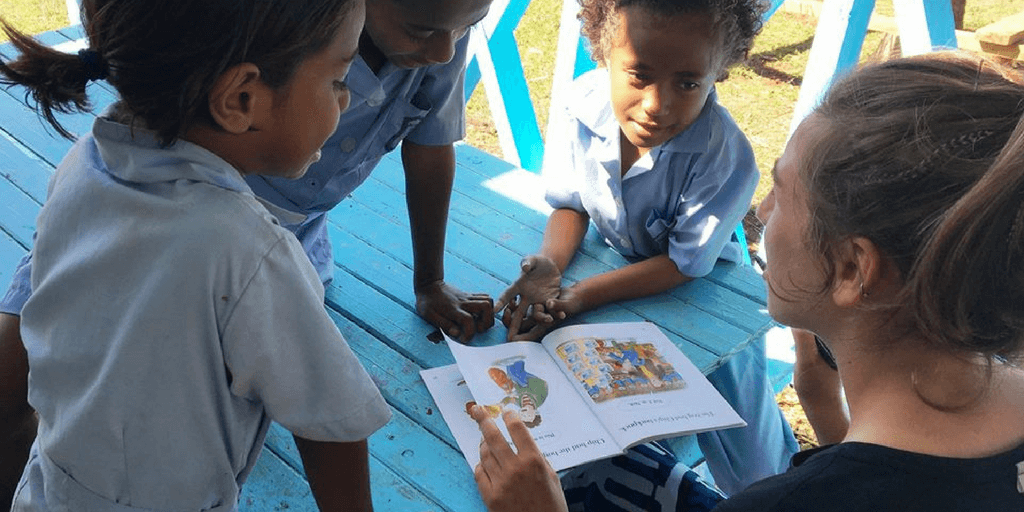
Building up volunteering experience to include on your college application form is pretty much an expected part of the college preparation process. The reality is that just volunteering somewhere in your final year is not going to make you stand out much compared to the other candidates.
Further Reading: This Is How Volunteering Will Help Your University Application
What you need to do is create a story of who you are and what your interests are through your volunteering experience. Sound complicated? Actually, it’s rather straightforward. Just pick the causes you care most about, the organisations that sound like a great fit to you, and the projects you’re most excited about.
If you keep at it, you’ll start to see a pattern. Did you switch from project to project because you discovered what you didn’t enjoy? Did you love one organisation and do four projects with them? Do you prefer working with animals, children or adults? Was teaching something you really loved?
Now, when you apply to the colleges of your choice the admissions officers will get to see not only that you are a caring person, but that you are someone with specific interests and a dedication to doing work they’re passionate about.
7) To Help You Get A Job
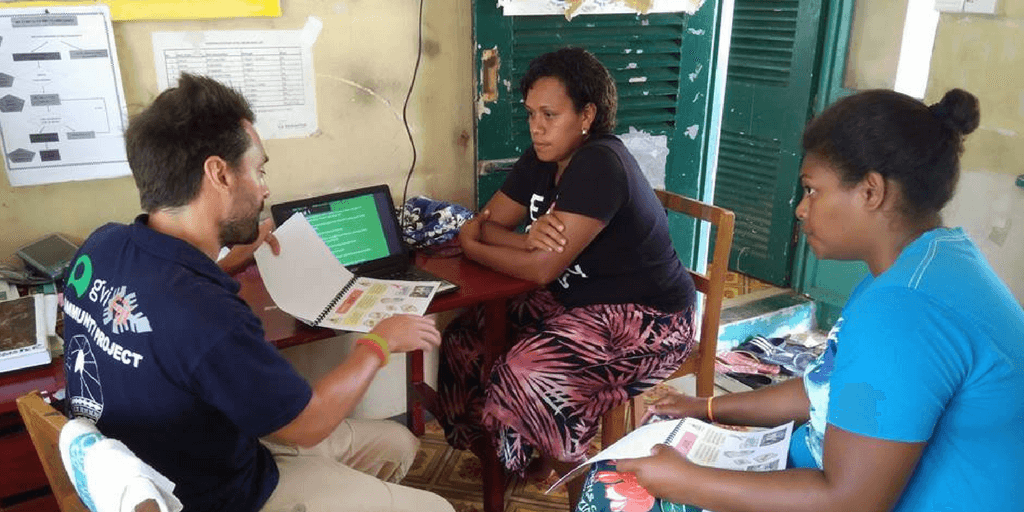
Considering that it is an established fact among recruiters and hiring managers that volunteering makes you more hireable, it’s surprising how many candidates still do include this experience on their resumes. This is true both for recent graduates and workers looking for new roles.
Further Reading: Which Gap Year Program Is Best For My Career?
There are many reasons for this trend. For those fresh out of college or high school, volunteering can help you fill that nerve-wracking time between student-life and earning a regular paycheck. It also helps you avoid that dreaded label — ‘unemployed’ — when you walk into an interview. You also get to build up some work experience and improve skills like teamwork and communication, which were not developed during your student years.
Further Reading: Know Your Skills: How To Explain Your Abroad Experience On A Resume
Learning more about the type of work you enjoy and the kind of environment you like working in can also help you know what to look for in a permanent employer. In addition, it’s excellent for proving to employers that you can get the job done and that you’ll be a great asset to have around. Kickstarting your professional network is yet another benefit of volunteering for new graduates.
Further Reading: One Skill Every 21st Century Student Should Have and How to Get It
The currently employed can benefit from volunteering by learning skills that will help them either advance in their current profession or explore their options for a career transition. Unlike with paid work, volunteering also allows you to make more demands of the organisation you are lending a hand to. This means you could get the chance to work on projects that your permanent employer would not entrust you with, allowing you to really expand your skillset beyond its current range.
Further Reading: 16 of the Best Fundraising Ideas for Volunteers
An example of these new skills could be your leadership skills. Volunteering could give you the chance to prove that you can run a project all on your own. Volunteering has also been shown to boost both productivity and confidence, two skills that professionals in any profession needs if they are looking to get a promotion.
And who knows, if the organisation is impressed with your work, there is always the chance that you’ll be hired as a full-time employee. Quite a few of our own volunteers have turned their time with us into paying positions either at GVI or with our many partners around the world.
But Why Should I Volunteer Abroad?
1) To Travel, Of Course

Further Reading: Top 5 Reasons To Volunteer In Seychelles
Okay so this one is a bit cheeky, but come on, who doesn’t want to dive along the coast of beautiful tropical islands, trek through magical forests, spy strange wild creatures through the canopies and taste exotic new flavours of some foreign-sounding dish.
Volunteering is a great reason for travelling abroad and our volunteer vacation packages are the most convenient way to combine adventure, relaxation and doing good all in one trip. GVI offers programs all over the world including Africa, Asia, Australasia, Latin America and Europe.
2) To Learn A New Language
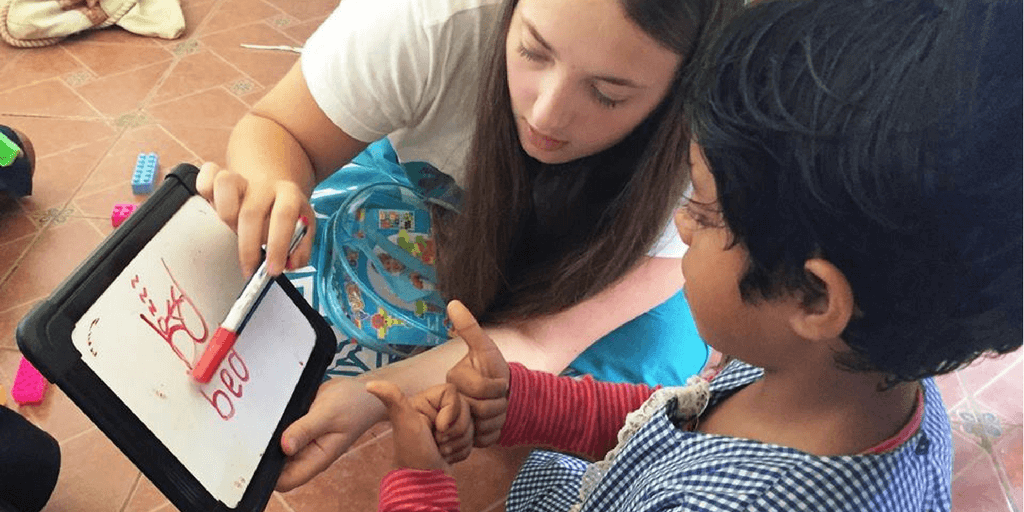
Further Reading: 10 Tips To Make Language Learning Fun
Have you ever heard of ‘immersive’ language learning techniques? It means you learn how to understand and speak a language in real-life situations by having to communicate only in this language for the duration of the course. While it can feel like a quite daunting task at first, it is the fastest, most effective way to learn any language.
Volunteering with communities in other countries is very much an immersive language experience. Every day you will need to use their language to understand how you can help them and to tell them what you need from them. In no time you’ll have mastered the conversational basics of the language.
3) To Truly Experience What A New Culture Is All About

One of the top reasons to travel abroad is to experience a totally new culture first hand. While your average tourist generally only scratches the surface of what a country’s history and people have to offer by standing around watching traditional dance performances, rushing through museums and buying either gaudy handicrafts or replicas of iconic monuments, volunteers get to the heart of a country by experiencing what life among the people is really like.
Further Reading: Karen Culture: History, Weddings and Clothing
Volunteers who work with communities get to ask real people about where they come from and about their families. They learn about the traditions that their ancestors have been observing for centuries and their personal ambitions for the future. Learning what community members are making for dinner is also a much better way of finding out about local cuisine than visiting a restaurant recommended by the guide book.
4) To Ace Your College Essay (And Help You Stand Out)
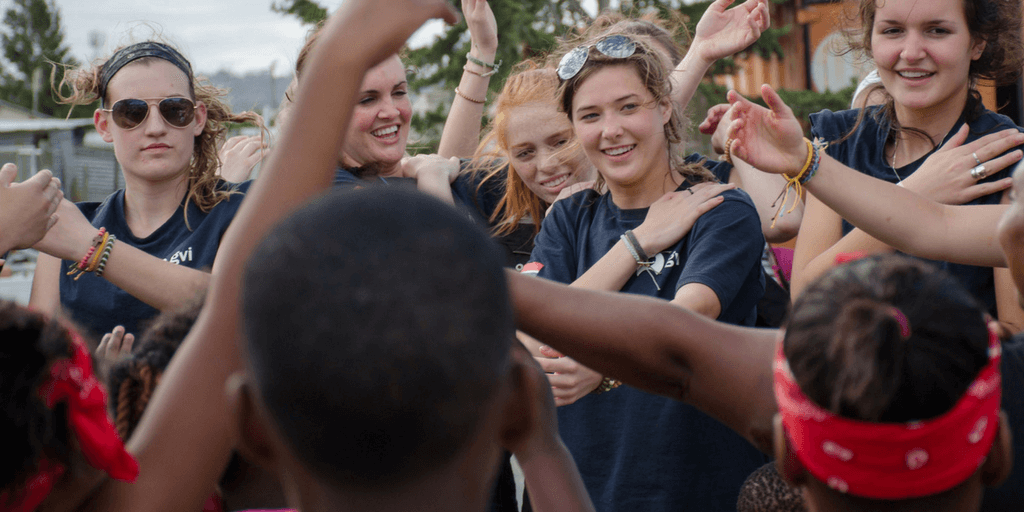
Further Reading: 7 Steps To Become A Global Citizen
Oh the dreaded college essay. As early as November, students across the States lie awake at night thinking ‘What on earth am I supposed to write about?’ You know it’s supposed to be about something ‘unique’, but the truth is that it’s kind of a hard task when you consider that you’ve only had 17 years in which to experience something truly special. Add to that the fact that you’ve never experienced what it’s like to not be in high school, which, let’s admit, can be a pretty restrictive environment. Many young adults have also never left their hometowns, so how are they meant to find any kind of real inspiration?
Further Reading: 13 Stunning Thailand Gap Year Photos To Inspire You
One of the very best ways to sort of ‘trigger’ a profound life experience is to volunteer in a new country. Not only will you see what life is like outside the town and nation of your birth, but you’ll also be challenged on a daily basis, get to live life more freely and gain some independence. Keep a journal while you’re overseas to jot down your insights and you’ll be on your way to having a knock-out college essay ready by the time you arrive home a changed person.
When writing your essay focus on how interacting with another way of life changed your way of thinking. Be sure to mention any times you used a new language and custom to communicate with locals, as well as the inevitable awkwardness that ensued.
Showing that you struggled to cope at first and how you found a way around the problem will make college admissions officers see that you are not only aware of your weaknesses, but you actively work on them using your ability to reflect on your problems, develop solutions and act on them. Any way you can show how you took the initiative to solve a problem and inspired a group of people to solve it would also count in your favour.
5) To Land Your Dream Job
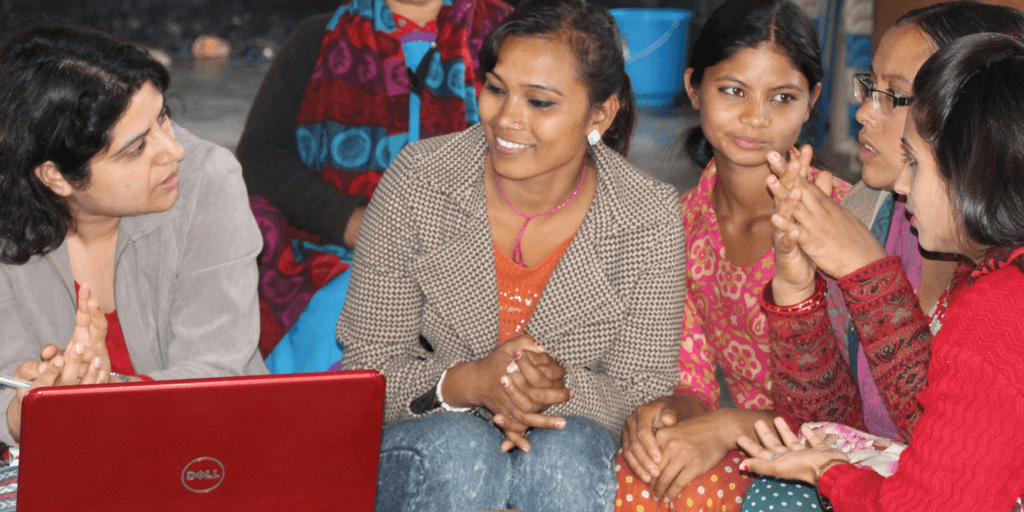
Further Reading: The Value of International Work Experience
Employers value the international experience volunteering abroad affords college students for much the same reason that college admissions officers do. The difference is they put even more emphasis on intercultural competency and leadership skills. The good news is that these are the skills GVI focuses specifically on developing in our international internship programs. GVI interns even walk away with an official GVI leadership course certificate that they can put on their resume.
Hiring managers also look for skills like the ability to work in a team, negotiate (be sure to tell your story about haggling down that salesman in the Indian market), be resilient and effective in the face of challenges (remember that time you couldn’t find the right bus and lost your luggage?), and prioritise tasks.
Having visited locations in developing regions, rather those in more wealthy nations is also preferred by some employers as it shows that you have guts and are more than willing to stray off the beaten track to seek new opportunities.
Further Reading: Best GVI Summer 2018 Internships Abroad For College Students
Some hiring managers even actively select only those graduates with international experience, so it makes sense that graduates who have worked or studied abroad get hired faster and their starting salaries tend to be higher overall.
But all this hard work goes to waste if you can’t speak about it thoughtfully. Make sure you communicate how the experience helped you develop both as a person and as a worker on your Linkedin summary, on your resume, and in the interview.
Further Reading: Your Guide To GVI’s International Business Internships
Why Then Do Many People Never Volunteer
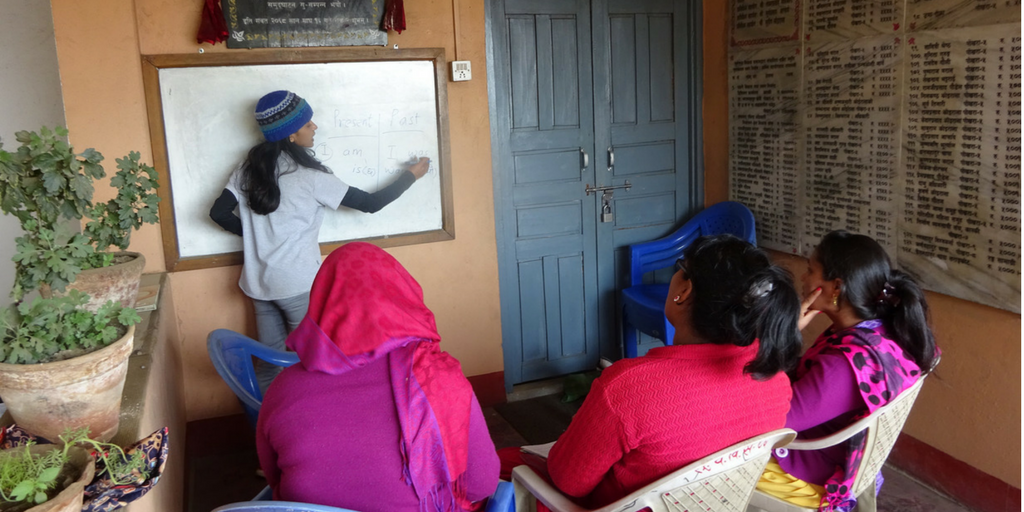
Just under one-quarter of Americans have selected to volunteer on service projects. Talk to most people about volunteering and you’ll get the response that there simply isn’t enough time. They have to study for exams, put in the time for their sports teams, meet up with friends, spend time with family, or work either to pay daily expenses, debt, or to save up.
Further Reading: 16 Interesting Facts About Ghana
But the hard fact of lack of time is not what it seems. People still spend time watching series, eating out at restaurants and going shopping. Why then do they not spend time volunteering?
Further Reading: 12 Awesome Things To Do In Peru
The main reason is that they don’t make it a priority. They don’t think it is valuable enough to give up doing something else. I mean, it seems logical, if you spend more time on yourself than on others then you will know that you are well-cared-for, right?
Many also believe that volunteering takes away from your ability to put more into studies or work and minimises the time you spend with the people that are most important to you. It is also considered something that is stressful so people will choose to rather go to the beach or play a game of something.
Further Reading: Nine of the best things to do in Cambodia
All this comes from a misunderstanding of volunteering. Giving your time to help others often has greater benefit for you than for the person you’re helping. Participating in community service projects improves your academic and career prospects and helps you build better relationships. Volunteering also doesn’t have to require much of you and is often great fun. There’s no reason why you can’t collect trash while you’re on the beach or volunteer to teach sports at a local school.
Further Reading: 10 Things You Need to Do in Cape Town
If you’re concerned about fitting volunteering into your study schedule, consider that you can always use your spring, summer or winter breaks to volunteer and even earn credits depending on the program. Taking a gap year to volunteer for causes you truly care about is also recommended by many prestigious four year institutions and could increase your chances of getting accepted.
Further Reading: 7 Reasons to Volunteer in India
Too much work preventing you from volunteering could point to a bigger issue. Take a close look at your work-life balance and consider if the workload expected of you is realistic. If not, it might be time to discuss the matter with your superior. You should be able to have time to dedicate to your own interests.
Further Reading: Top 5 Reasons To Volunteer In Seychelles
Spending time with your family while volunteering is also possible and will likely result in more healthy relationships and stronger bonds. And finally, if you find certain activities like volunteering with children or caring for animals too emotionally taxing you can always choose a more behind-the-scenes role such as helping with the administration or marketing side of things.
Why do you volunteer and what would you say to someone who has never volunteered before? If you haven’t volunteered yet, what’s holding you back? We’d love to hear what you have to say. Send us a message on Facebook or Twitter.



